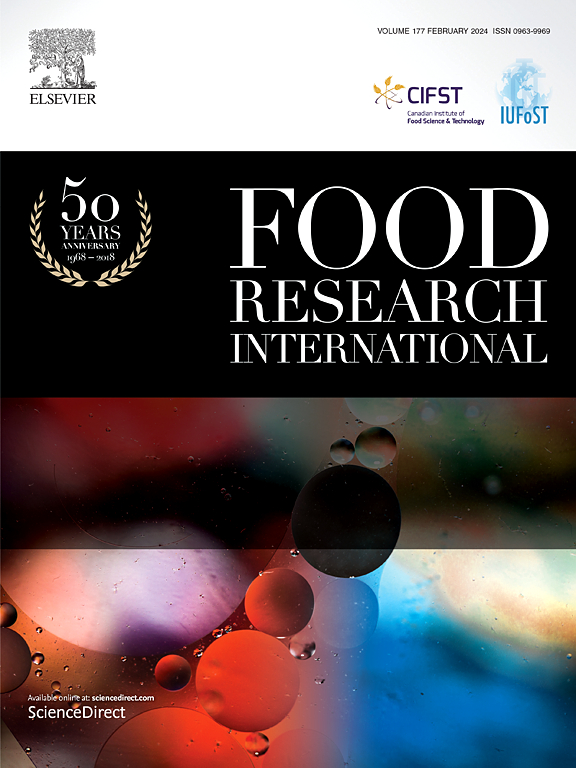Impact of secondary temperature rise on microbial succession and flavor compounds in strong-flavor baijiu fermentation
IF 7
1区 农林科学
Q1 FOOD SCIENCE & TECHNOLOGY
引用次数: 0
Abstract
The fermentation process plays a crucial role in determining the quality of strong-flavor Baijiu, with fermentation temperature being a key factor influencing the outcome. In recent years, traditional monitoring of the fermentation temperature relies heavily on empirical experience; however, the causes and influencing factors of unnormal temperature phenomena in the fermentation of strong-flavor Baijiu remain insufficiently studied. This research employed high-throughput sequencing technology and gas chromatography–mass spectrometry (GC–MS) to analyze the changes in microbial communities, flavor compounds, and physicochemical parameters before and after secondary temperature rise (STR) occurrence. The results showed that, under STR conditions, the diversity of flavor compounds increased, but their overall content decreased. The STR accelerated microbial succession, particularly promoting the rapid accumulation of Lactobacillus and inhibiting the growth of other bacterial genera, leading to a significant reduction in microbial diversity. Additionally, STR resulted in the enrichment of the fungal genus Thermoascus, increased utilization of reducing sugars, and higher ethanol content. The core microbial heat-production metabolism might be responsible for the occurrence of STR. This study helps elucidate the causes of STR in strong-flavor Baijiu fermentation and its impact on the fermentation process, highlighting the importance of controlling fermentation temperature and monitoring microbial community succession to prevent STR and ensure high-quality production of strong-flavor Baijiu.

二次升温对烈性白酒发酵中微生物演替及风味化合物的影响
发酵过程对烈性白酒的品质起着至关重要的作用,发酵温度是影响烈性白酒品质的关键因素。近年来,传统的发酵温度监测很大程度上依赖于经验;然而,对烈性白酒发酵过程中出现的温度异常现象的原因及影响因素研究较少。本研究采用高通量测序技术和气相色谱-质谱联用技术(GC-MS)分析了二次温升(STR)发生前后的微生物群落、风味化合物和理化参数的变化。结果表明,在STR条件下,风味化合物的多样性增加,但总体含量降低。STR加速了微生物演替,特别是促进了乳酸杆菌的快速积累,抑制了其他细菌属的生长,导致微生物多样性显著降低。此外,STR还导致热曲霉属真菌的富集,还原糖的利用率增加,乙醇含量增加。核心微生物产热代谢可能是导致STR发生的原因。本研究阐明了浓味白酒发酵过程中STR发生的原因及其对发酵过程的影响,强调了控制发酵温度和监测微生物群落序列对预防STR的发生,保证浓味白酒的高品质生产的重要性。
本文章由计算机程序翻译,如有差异,请以英文原文为准。
求助全文
约1分钟内获得全文
求助全文
来源期刊

Food Research International
工程技术-食品科技
CiteScore
12.50
自引率
7.40%
发文量
1183
审稿时长
79 days
期刊介绍:
Food Research International serves as a rapid dissemination platform for significant and impactful research in food science, technology, engineering, and nutrition. The journal focuses on publishing novel, high-quality, and high-impact review papers, original research papers, and letters to the editors across various disciplines in the science and technology of food. Additionally, it follows a policy of publishing special issues on topical and emergent subjects in food research or related areas. Selected, peer-reviewed papers from scientific meetings, workshops, and conferences on the science, technology, and engineering of foods are also featured in special issues.
 求助内容:
求助内容: 应助结果提醒方式:
应助结果提醒方式:


